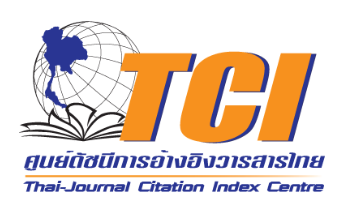Publication Ethics
Statement of Publication Ethics
To maintain high ethical standards of publication in the Journal of Community Development Research (Humanities and Social Sciences), Naresuan University is committed to the requirement of the following violations that discourage publication malpractices of any kind:
- Plagiarism of other works in all forms inclusive of self-plagiarism
- Manuscripts and articles with data fabrication and falsification
- Articles that have been published elsewhere
- Manuscripts and articles with citation manipulation
Any manuscript under review that disrupts one or more of those requirements shall be immediately rejected, and published articles found to contain any of such violations shall be withdrawn from the journal.
In case that the author withdraws or submits a manuscript to other journals after the manuscript has been sent to peer review till the final decision, there is no charge for a penalty fee for its time, but the author would be blacklisted and not allowed to submit any more manuscripts to the Journal.
Duties of Authors
Original Work: All submitted manuscripts to Journal of Community Development Research (Humanities and Social Sciences) are expected to be original contributions, not previously published in any language or country (except as an abstract or preliminary report), nor under consideration for publication elsewhere. The submission of a manuscript concurrently to more than one journal is unethical and objectionable. To systematically track suspected incidents, Journal of Community Development Research (Humanities and Social Sciences) uses Turnitin software to check for plagiarism and/or previous publications in order to reject articles that have substantial proportions of texts copied from other sources.
Accuracy: The author should present an accurate account of the work throughout as well as an objective discussion of its significance. Underlying data should be also represented accurately in the paper, and conclusions should be based on the evidence presented in the paper.
Acknowledgment of Sources: As a research article is established upon previously published works, the author should acknowledge the insight as such by citing works in the article and listing them in the references. Making statements of facts or ideas without citing evidence to back them up is not considered as acceptable research practices.
Disclosure of Financial Support and Conflicts of Interest: All financial support for the research and the paper writing process should be disclosed in the acknowledgments, including any conflicts of interest.
Authorship: The author is expected to participate in the publication process effectively by following instructions and suggestions informed by the Journal strictly. This includes taking responsibility for the submitted manuscript and all feedback related to plagiarism, distortion of data, misuse of third party material, construction of results and deceitful authorship. Any person/organisation that helps contribute to the work should be clearly acknowledged in the “Acknowledgments” section when their written permission to be named has been acquired. It is necessary that all co-authors have seen and approved the final version of the paper and agreed to its submission for the publication.
Duties of Editors
Confidentiality: Journal of Community Development Research (Humanities and Social Sciences) uses a “double-blind” peer review process where neither the authors nor the reviewers know each other’s identity. It is our policy to protect the identity of author(s) and reviewers throughout the review process. In this regard, unpublished materials mentioned in the submitted manuscript are not quoted or referenced by an editor without the written consent of the author. Likewise, recommendations or ideas attained through peer review are kept confidential and unobtainable for personal advantage.
Conflicts of Interest: The editors shall be detached from the review process when they have any conflict of interest or personal stake in the publication.
Objectivity: All decisions on publication are made objectively after reviewing the submitted manuscript and the peer reviews. Critical factors in the decision to publish are subjected to the work’s contribution to the existing research in its field, the quality of the content and the strength of the provided evidence.
Duties of Reviewers
Confidentiality: Reviewers are required to respect the confidentiality of the review process. They shall not discuss any aspect of the work under review with other researchers until the article is published. In this regard, unpublished materials mentioned in the submitted manuscript are not quoted or referenced by a reviewer without the written consent of the author. Likewise, recommendations or ideas attained through peer review are kept confidential and unobtainable for personal advantage.
Conflicts of Interest: In case that the reviewer has realised, after receiving a manuscript for review, that he or she has been involved in the research described, such as knowing the researchers in the research or for any reason affecting an objective review of the manuscript, the reviewer must inform the editors and discard himself/herself from the review. Conflicts of interest include competitors, collaborators, other relationships or connections related to any of the authors, companies, or institutions connected to the paper.
Objectivity: All manuscripts shall be reviewed objectively in accordance with the reviewer’s expertise in the field. Critical factors in the decision to publish are subjected to the work’s contribution to the existing research in its field, the quality of the content and the strength of the provided evidence. Personal opinions without recognised evidence are not accepted as criteria for review decisions.
Acknowledgement of Sources: Reviewers shall notify important published works that have not been cited by the author. Every reviewer has the right to call for the editors’ attention to any substantial similarity or overlap between the manuscript under review and other published papers which they have knowledge of.








